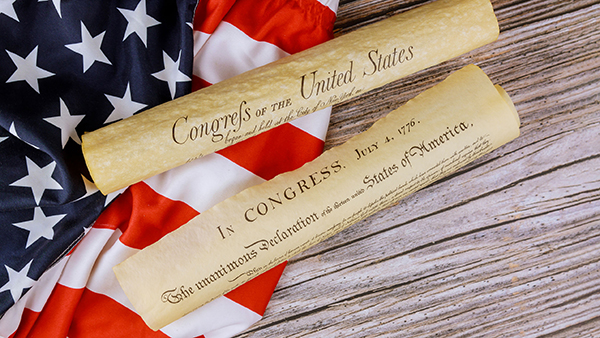When the Becket Fund for Religious Liberty initiated its annual Religious Freedom Index in 2019, the intent was to ask the same questions each year in order to provide “a consistent year-by-year picture of American perspectives on religion, culture and the law.”
Then along came 2020, which was anything but consistent. Still, a look at the 2020 results provides insight into what Americans value as 2021 begins.
In its 2020 study, Becket researchers asked 1,000 Americans from all walks of life not only the same 21 baseline questions from the Index’s inaugural year, but also included some 50 additional questions on the COVID-19 pandemic, racial justice and the 2020 election. The Becket Fund is a nonprofit institute seeking to protect the free expression of all faiths.
Three themes emerged
Three themes emerged from the 2020 survey, according to the report released in November:
- Americans weather storms anchored by faith
- Religious identity cannot be quarantined
- Leadership gaps surfaced in defending racial justice and religious freedom.
In a year when Americans seem to disagree on just about everything, more than 60% of respondents agreed that “religion and people of faith are part of the solution to the issues facing our country,” the report said. That view was endorsed not only by people older than 65, but also Generation Z, the cohort age 23 and under.
Sixty percent of respondents agreed that religious faith is a fundamental part of some people’s identity and that religious exercise extends into all manner of public places, such as school, work and social media. Gen Z and black respondents were particularly supportive of the right to free religious expression in the workplace.
Becket suggests that such attitudes have led directly to church and state conflicts related to the pandemic.
Identity marker
“Seeing religion as an identity also helps explain views on religious worship during the pandemic,” Becket researchers wrote.
“State and local governments across the country walked into lawsuits brought by religious plaintiffs when they failed to treat houses of worship and religious schools equally in their pandemic reopening policies. A majority of respondents said that houses of worship should be treated with at least the same priority for reopening as businesses.”
While the survey found that Americans “cared deeply” about both racial justice and religious freedom, they are disappointed in the amount of leadership from elected officials and religious communities in addressing those issues.
More than four out of five respondents who said faith was important also think that religious organizations should have a role in advocating for racial equality and justice. Nearly half said that role should be a major one.
“However, less than half said that their faith community had done a good job of responding to these same issues,” researchers wrote.
Researchers went on to say, “the American people seem similarly dissatisfied with their elected officials’ performance in protecting religious freedom,” Becket reported. This attitude was particularly true of people of faith who were also registered to vote.
When asked who in government does the best job of protecting religious freedom, respondents said:
- Courts — 27%
- Other — 21%
- President — 19%
- State governments — 18%
- Congress — 15%
Leaning on faith
While 2020 brought many challenges influencing this year’s Index results, one key indicator remained stable, researchers said, noting that “religious freedom continues to garner support across demographics.”
As Americans deal with unprecedented challenges, Becket noted, they continue to lean on faith.
“Our findings present a picture of Americans relying on religion and religious freedom to deal with the challenges of 2020, both reactively and proactively.
“Americans rely on religion and religious freedom as they face difficult circumstances. They also rely on religion and religious freedom to change those circumstances and move forward. We saw evidence for this versatility of religion and religious freedom in contexts of societal unrest, the coronavirus pandemic and issues of racial justice.
“In these areas and others, religious freedom and religion contribute to Americans’ resiliency through the challenges of 2020.”






Share with others: